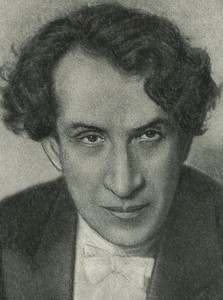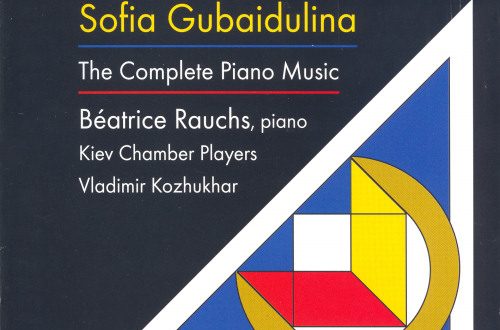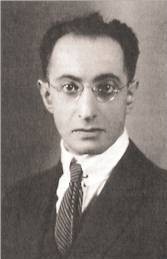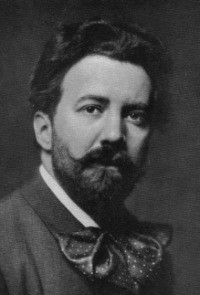
Ariy Moiseevich Pazovsky |
Ariy Pazovsky

Soviet conductor, People’s Artist of the USSR (1940), winner of three Stalin Prizes (1941, 1942, 1943). Pazovsky played a huge role in the development of Russian and Soviet musical theater. His creative life is a vivid example of selfless service to his native art. Pazovsky was a true innovative artist, he always remained true to the ideals of realistic art.
A student of Leopold Auer, Pazovsky began his artistic career as a virtuoso violinist, giving concerts after graduating from the St. Petersburg Conservatory in 1904. However, the very next year he changed his violin to a conductor’s baton and entered the position of choirmaster and assistant conductor at the Yekaterinburg Opera House. Since then, for almost half a century, his activity has been associated with theatrical art.
Even before the October Revolution, Pazovsky led many opera companies. For two seasons he was the conductor of S. Zimin’s opera in Moscow (1908-1910), and then – Kharkov, Odessa, Kyiv. An important place in the biography of the musician is occupied by his subsequent work in the Petrograd People’s House. Here he talked a lot with Chaliapin. “Creative conversations with Chaliapin,” Pazovsky noted, “a deep study of his art, nurtured by Russian folk song and the great realistic traditions of Russian music, finally convinced me that no stage situation should interfere with truly beautiful singing, that is, music … »
Pazovsky’s talent unfolded in full force after the Great October Revolution. He did a lot for the formation of Ukrainian opera companies, was the chief conductor of the Leningrad Opera and Ballet Theater named after S. M. Kirov (1936-1943), then for five years – artistic director and chief conductor of the Bolshoi Theater of the USSR. (Before that, he conducted performances at the Bolshoi Theater in 1923-1924 and in 1925-1928.)
Here is what K. Kondrashin says about Pazovsky: “If you ask how you can express Pazovsky’s creative credo in a nutshell, then you could answer: the highest professionalism and exactingness towards yourself and others. There are well-known stories about how Pazovsky drove artists to exhaustion with the demands of an ideal “time”. Meanwhile, by doing this, he ultimately achieved the greatest creative freedom, since technological issues became habitually light and did not occupy the attention of the artist. Pazovsky loved and knew how to rehearse. Even at the hundredth rehearsal, he found words for the new demands of timbre and psychological colors. And the most important thing was that he turned not to people with instruments in their hands, but to artists: all his instructions were always accompanied by emotional justification … Pazovsky is the educator of a whole galaxy of opera singers of the highest class. Preobrazhenskaya, Nelepp, Kashevarova, Yashugiya, Freidkov, Verbitskaya and many others owe their creative development precisely to working with him … Each performance of Pazovsky could be recorded on film, the performance was so perfect.
Yes, Pazovsky’s performances invariably became an event in the artistic life of the country. Russian classics are in the center of his creative attention: Ivan Susanin, Ruslan and Lyudmila, Boris Godunov, Khovanshchina, Prince Igor, Sadko, Maid of Pskov, Snow Maiden, Queen of Spades , “Eugene Onegin”, “The Enchantress”, “Mazeppa” … Often these were truly exemplary productions! Along with Russian and foreign classics, Pazovsky devoted a lot of energy to Soviet opera. So, in 1937 he staged O. Chishko’s “Battleship Potemkin”, and in 1942 – “Emelyan Pugachev” by M. Koval.
Pazovsky worked and created all his life with rare purposefulness and dedication. Only a serious illness could tear him away from his beloved work. But even then he did not give up. In the last years of his life, Pazovsky worked on a book in which he deeply and comprehensively revealed the specifics of the work of an opera conductor. The book of the remarkable master helps new generations of musicians move along the path of realistic art, to which Pazovsky was faithful all his life.
Lit .: Pazovsky A. Conductor and singer. M. 1959; Conductor’s Notes. M., 1966.
L. Grigoriev, J. Platek





